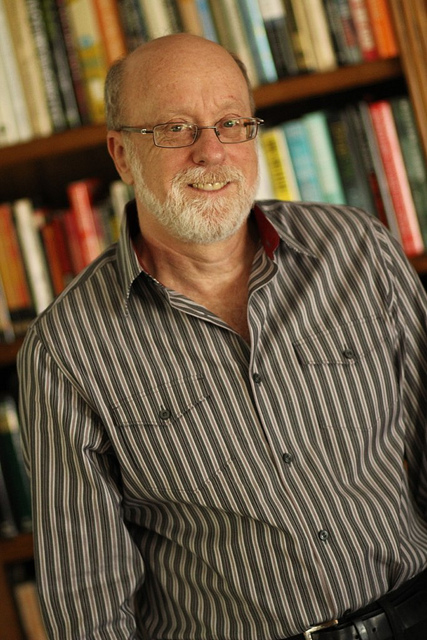Damascus, Syria: the oldest continuously inhabited city in the world, rich with culture, steeped in history, and the setting of Howard Kaplan’s best-selling espionage thriller, “The Damascus Cover.” Released in 1977, the book spent three consecutive weeks on the L.A. bestsellers list—not too shabby for a debut. Forty years later, it’s making a major comeback in the form of a highly anticipated movie starring Jonathan Rhys Meyers, Olivia Thirlby, and the late John Hurt.
“It’s a small miracle,” says Kaplan, when asked about how he feels regarding the upcoming film. Director Daniel Berk, with whom Kaplan is now close friends, spent ten years cumulating the cast, crew, and financial means to make the film a reality. Originally having bought the rights in 2005, it wasn’t until 2014 that production became more than a slim possibility.
“I didn’t even tell anyone about it for five years,” Kaplan admits. “Not even my son.” His son, Asher Kaplan, an Oberlin College graduate, confessed to having doubts about the film coming to fruition at first. However, what started out as an inconspicuous rebirth quickly evolved into a large-scale project involving several outstanding actors. Two weeks before shooting began in Casablanca, the movie “failed upward”—a last-minute casting change resulting in Meyers starring as the lead. Failing upwards, indeed.
The plot is one of high stakes, involving burnt-out Israeli agent Ari Ben Sion (Meyers) who is sent on a last mission to infiltrate the expatriate Nazis and to smuggle Jews out of the country, posing as a German businessman interested in buying carpets. Shot in Morocco due to issues in Syria, the story was updated slightly from its original 1970s setting, instead taking place in 1989. Intense close shots and excellent scoring only add to the eerie, nail-biting nature of the thriller, cumulating in a gritty fast-paced tale of espionage well worth the ten-year wait.
Inspiration for the novel can be attributed to Kaplan’s travels abroad, and more specifically, to his own personal experience in espionage. His junior year of college was spent in Jerusalem, offering him incredible insight into the Middle East. He visited Damascus briefly with a friend traveling by taxi, and promptly fell in love with the once beautiful city before discovering that there was a mysterious someone tailing him and his companion. Consequently, their departure was abrupt.
In the years that followed, Kaplan was recruited to Moscow by an acquaintance back home in L.A. with the purpose of meeting dissidents and sneaking manuscripts out of the Soviet Union. In those days, there was a growing number of Jews who sought to leave the country. The U.S.S.R. had dictated that any unpublished work became property of the state and would be confiscated at the border. Spurred by a desire to stand up for the Jewish community, Kaplan made two trips to Moscow, successfully smuggling one manuscript out on microfilm and passing off a second to a Dutch ambassador. He was later arrested by the KGB, accused of having met with dissidents.
“I was arrested on the tenth day of my 14-day visa,” Kaplan explains. “I figured I could make it four days, and then they had to release me. If they’d kept me longer I would’ve had reason to be scared. They treated me quite nicely, really.”
Upon his return to America, Kaplan recalls feeling burnt-out and restless, a sentiment he channeled into the character of Sion once he turned to writing. “It was actually easier for me to transfer that feeling into the character of a 50-something year old man instead of trying to write an autobiography at 25,” he said.
In retrospect, he claims that the experience overseas was a crucial step in his pursuit of a career as a novelist. Although less so than his later work, “The Damascus Cover” is meant to have an overarching theme of reconciliation, something Kaplan believed needed to happen between the Jews and Palestinians of both the past and present. The 67 year old hopes that both the release of the film and the recent republication of the book will bring attention to ongoing conflict in the Middle East that has plagued its people for so long.





















































